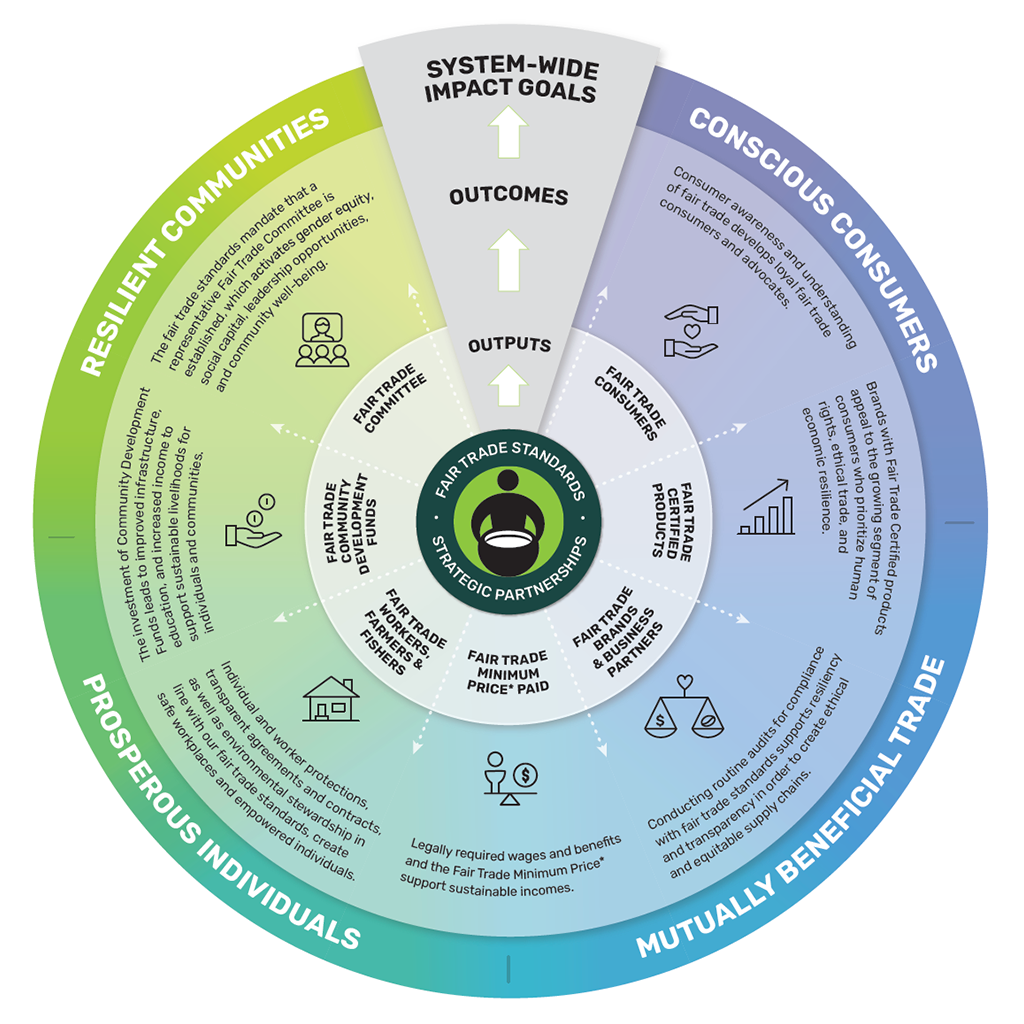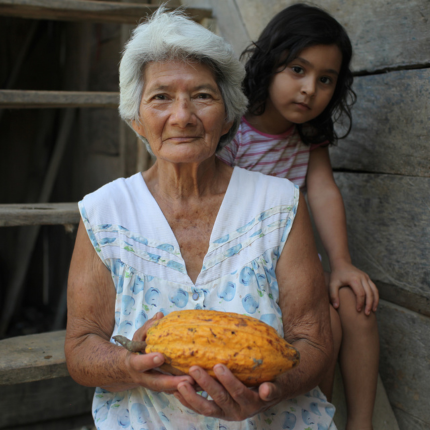Fair Trade Theory of Change
Our theory of change explains how Fair Trade USA programs work together to impact the livelihoods of farmers, workers, and fishers over time. We define, measure, and communicate the impact of this model through our Impact Management System (IMS)
What is a theory of change?
A theory of change is a visual representation of how the strategies and activities of an organization impact the lives and livelihoods of others over time. For us, the Fair Trade theory of change includes small producers, fishers, and workers in hired labor settings on farms and in factories (collectively referred to as producers).
In many global supply chains, value is not shared equitably, and producers have limited ability to negotiate a fair exchange for their goods and services. To compete in today’s market, businesses drive down prices at the expense of those most vulnerable, meaning that producers may not receive payment that covers their basic needs or even the cost of production. This simply can’t go on.
The Fair Trade model empowers producers and enables businesses to more transparently support sustainable livelihoods and practices. We continuously innovate this model and identify opportunities to expand our reach through business partnerships and through the expertise, technologies, and resources provided by our philanthropic partners large and small.
Ultimately, we’re shifting global systems of inequity to create a model where producers and their communities can thrive under strong social protections and fair trading relationships. By putting our seal on goods made responsibly, fairly, and sustainably, we make it easier for people to choose products that align with their values. Businesses are in turn rewarded for responsible sourcing and for supporting the people producing the products they buy and sell.
Watch this video to understand how our programs work together to create impact.
Our Theory of Change
Fair Trade USA’s Theory of Change frames a model where people prosper in resilient and sustainable communities through building a market for responsible business and mutually beneficial trade that cultivates conscious consumption.

This is a simplified preview. Download the full Theory of Change below.
What we must do to drive system-wide change:
Support communities
We support farming and working communities through provision of on-the-job training and additional money for community investment. We also uphold farmers’ and workers’ rights to participate in Fair Trade Committees, which activate gender equality, leadership opportunities, and community resilience.
Protect producers
We protect our workers, farmers, and fishers through certification, auditing, and compliance with our standards which grant access to additional capital and resources, and education along their Fair Trade journey.
Change industries
We change industries and empower communities by educating our farms, factories, fisheries, and brands on responsible business practices and by developing ethical supply chains.
Engage consumers
We engage consumers by celebrating brands that sell Fair Trade Certified products, and by educating consumers about why and how to advocate for sustainable supply chains.
How do we measure system-wide change?

The Impact Management System (IMS) is Fair Trade USA’s approach to defining, measuring, and communicating the impact of our model. It includes Fair Trade USA’s Theory of Change and the indicators, processes, and technologies used to monitor and evaluate its programs, and report on progress toward achieving its outcomes over time.
Resources
Theory of Change
Download a copy of our Theory of Change, a visual representation of how we impact livelihoods over time.
Logic Model
Take a closer look at our Logic Model, which depicts the Theory of Change in greater detail.